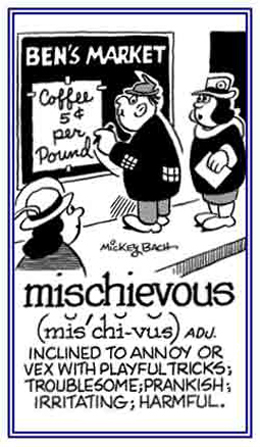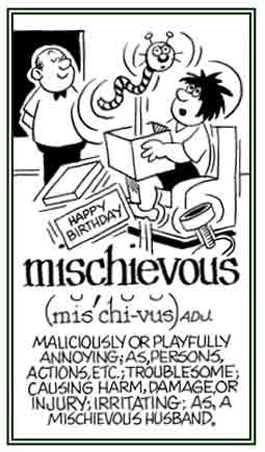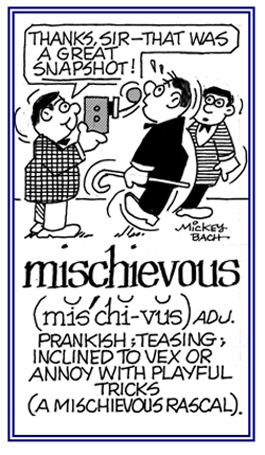capit-, capt-, cap-, cep-, ceps-, chapt-, chef, cip-
(Latin: head; leader, chief, or first)
It may be surprising to see that a "captain" and a "chef" both belong to the same word family; however, a captain is, of course, the "head of a company of military soldiers", and a "chef is the captain of a group of cooks".
A chef, especially to those who love good food, is not a lowly official; and when it is remembered that the old saying that "an army travels on its stomach", a chef is every bit as important as a captain.
When the French borrowed words from Latin, they frequently used soft sounds. These French words, with their softer sounds, then made their way into the English language. At the same time, English borrowed words directly from Latin. So it is that in English we often have two words which share the same root, but which have different, though related, forms and meanings.
Don't confuse the words in this capit-, capt- unit with those in the cap-, cip-, "catch, seize" unit.
2. Etymology: from Anglo-French courchief, from Old French couvrechief; literally, "cover head"; from couvrir, "to cover" + chief, "head".
The term is used in conjunction with security systems that identify people based on a previous recording of one or more of their body characteristics.
Live capture is used in some automatic teller machines (ATMs) to ensure that the person making the transaction is the individual to whom the magnetic ATM card belongs. One approach is iris scanning.
The subject must look in the general direction of a camera and the eyes must be uncovered. Otherwise, the transaction will not be completed. Another approach to live capture is facial recognition, which has been suggested as a way to scan crowds for suspected terrorists.
An advantage of live capture is that relevant action can be taken at the moment the data is gathered; for example, the police can be summoned if an intruder on a property is identified as a known criminal suspect by facial recognition equipment.
In contrast, so-called dead or passive capture is used primarily to gather evidence or make comparisons of samples when the subject is not physically present.
2. The quality, or nature, of being harmful or evil.
3. Behavior; especially, by children, that is undesirable or troublesome without being malicious; such as, a prank or a playful annoyance: "On Halloween, it is always wise to look out for mischiefs who go around playing tricks on others."
2. Relating to a person expressing his or her intention or inclination to have fun by teasing, playing tricks, or causing trouble; troublesome; irritating: By the mischievous tone of her voice, Jane's mother knew she was up to something irksome and bothersome.
3. At times, characteristic of an act or suggestion which causes or is meant to cause serious trouble, damage, or pain: Someone was telling mischievous lies about Mary's recent job promotion.
4. Etymology: from French meschef, from the verb meschever, "meet with misfortune"; from Latin caput, "head" and meant "come to a head" and then the modern sense of "naughtiness".



Go to this Word A Day Revisited Index
so you can see more of Mickey Bach's cartoons.
2. Behaving in a way, or describing behavior, which is slightly bad but is not intended to cause serious harm or damage: The puppy was mischievously shaking Jake's slipper.
3. A reference to behavior or words that are intended to cause harm or trouble: Henry realized that someone was mischievously passing around harmful gossip.
2. Not surrendering nor giving up.
3. Refusing to enumerate the main parts of a subject or not providing a summary.
2. The brink of a dangerous or disastrous situation: The school team was on the precipice of defeat.
Before he found out the results of his final examinations, Samuel felt as though he were at the edge of a precipice.
3. Etymology: from "fall to great depth"; from French précipice, from Latin præcipitium, "a steep place"; literally, "a fall" or "leap"; from præceps, præcipitis, "steep, headlong, headfirst"; from prae-, "in front" + caput, "head".
The meaning of "steep face of rock" is recorded from 1632.
The precipitance and quickness of the faculty members in submitting their resignations took the Board of Directors by surprise.


